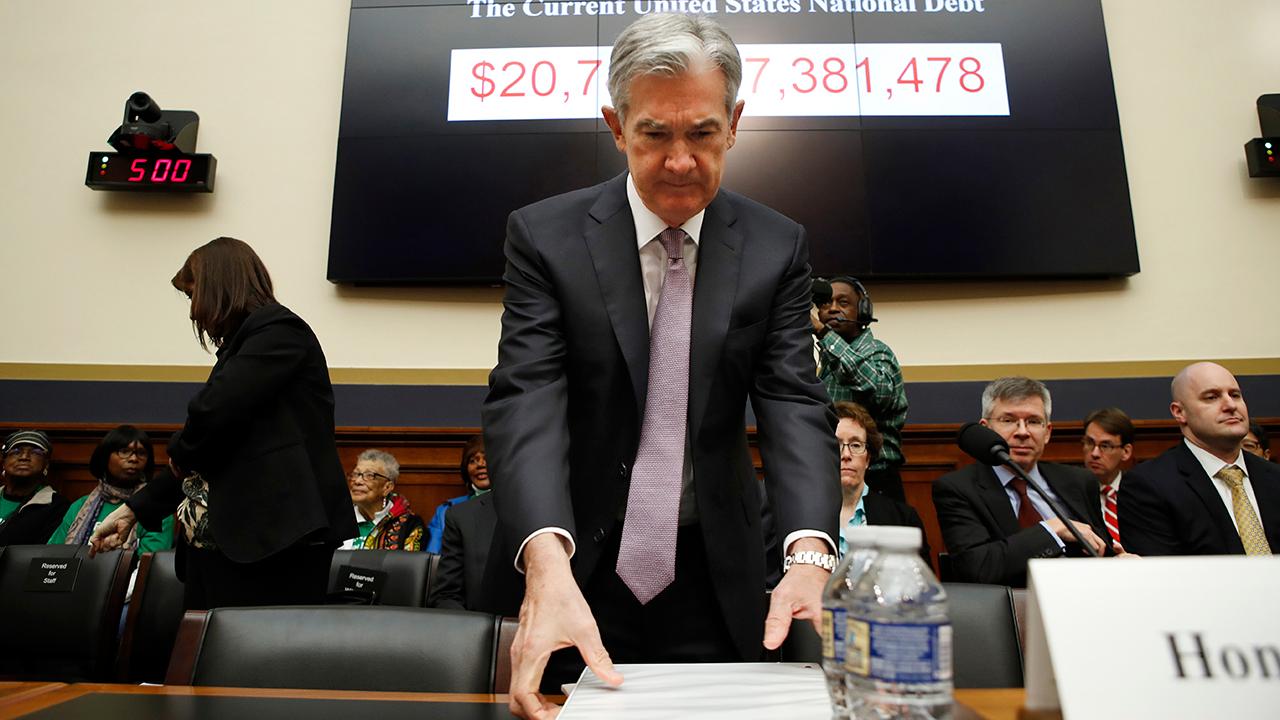Fed eyes interest rate hike as market holds breath
The Federal Reserve is expected to hike interest rates for the first time in 2018 when officials wrap up a two-day policy meeting Wednesday. But new Fed Chairman Jerome Powell will likely avoid the type of broader hawkishness that Wall Street has feared, experts say.
The central bank has laid out plans for three interest rate increases this year, responding to strength in the labor market and other U.S. economic indicators. A fourth rate hike could throw the market a curveball. U.S. stocks entered correction territory in February, driven by fears that a pickup in inflation would encourage the Fed to move faster on interest rates.
Investors see a 30.7% chance of a fourth rate increase in December, far more than the 10% odds seen just two-and-a-half months ago, according to the CME FedWatch Tool. Fed watchers also see a greater chance of three rate hikes in 2019, rather than two.
With investors already on edge, Powell will “play things closer to the vest” when he holds court for his first post-meeting press conference, The Sevens Report founder and editor Tom Essaye told FOX Business. The bigger question, he said, is whether the Fed will signal a more aggressive stance in its statement. A change in the Fed’s assessment of inflation—if officials declare that it’s nearing a 2% target—would be the clearest sign of a hawkish turn.
“The Fed does not want to spook the markets,” Essaye said, putting the probability of a hawkish statement at under 50%.
The Federal Open Market Committee will raise its target range for the federal funds rate to 1.5% to 1.75%, an increase of a quarter of a percentage point, based on the latest projections. Looking beyond the widely expected rate hike, investors will dig deeper into the Fed’s statement and Powell’s press conference in search of clues on inflation and other items.
Bill Merz, head of fixed income research at U.S. Bank Wealth Management, said inclusive data on inflation should give the Fed reason to stick by its plan for a gradual increase in rates. Wages jumped 2.9% in January compared to a year earlier, the best mark since June 2009. However, the next month, average hourly earnings in the private sector grew at a slower pace, rising 2.6%.
“I don’t think the Fed has the evidence they need to come out and make any bold statements about the manifestation of inflation yet,” Merz said, adding that higher inflation data should come later this year. “While I think there’s a risk that the Fed will come out more hawkish, I think Powell will be constructive and optimistic about the economy, but not extreme in his comments as far as creating volatility in the markets.”
Investors expect the former investment banker to continue the policies spearheaded by his predecessor, Janet Yellen: gradual rate hikes and shrinking the Fed’s balance sheet.
“What the market is looking for is for Powell to not rock the boat,” Essaye said.




















